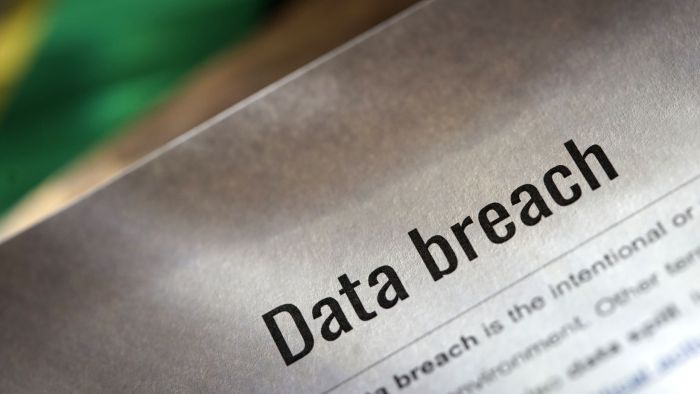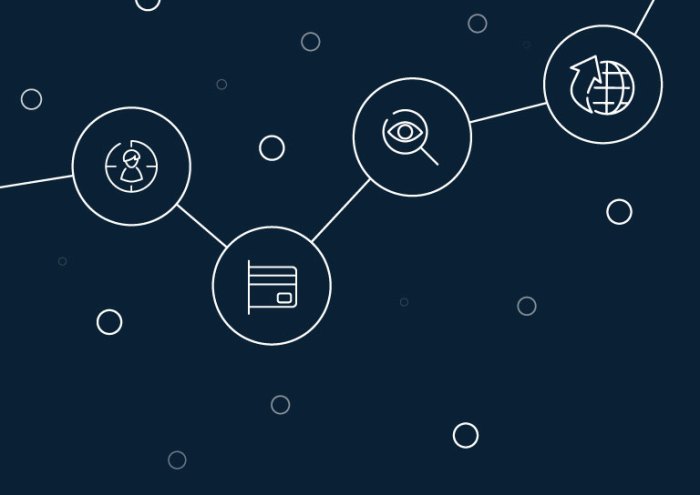Paper based pii is involved in more data breaches – Paper-based personally identifiable information (PII) is increasingly becoming a target for data breaches, posing significant risks to individuals and organizations. This trend demands attention, as the consequences of such breaches can be severe.
Paper-based PII breaches occur when sensitive information stored on physical documents, such as names, addresses, social security numbers, and financial data, is compromised. Unlike digital data, paper-based PII lacks the protection of encryption and other cybersecurity measures, making it more vulnerable to unauthorized access.
Data Breaches Involving Paper-Based PII: Paper Based Pii Is Involved In More Data Breaches

Data breaches involving paper-based personally identifiable information (PII) are a growing concern for organizations of all sizes. These breaches can expose sensitive information such as names, addresses, Social Security numbers, and financial data to unauthorized individuals, leading to identity theft, fraud, and other financial crimes.
Prevalence of Paper-Based PII Data Breaches, Paper based pii is involved in more data breaches
- According to a study by the Ponemon Institute, 60% of organizations have experienced a data breach involving paper-based PII in the past year.
- The Identity Theft Resource Center (ITRC) reported that paper-based PII breaches accounted for 25% of all data breaches in 2021.
Contributing Factors
- Lack of security measures:Paper-based PII is often stored in insecure locations, such as unlocked filing cabinets or on desks, making it easily accessible to unauthorized individuals.
- Human error:Employees may accidentally misplace or discard paper-based PII, leading to data breaches.
- Physical theft:Paper-based PII can be stolen from offices, vehicles, or mailboxes by criminals.
Vulnerable Industries
- Healthcare:Hospitals and clinics store large amounts of paper-based PII, including patient records and insurance information.
- Financial services:Banks and credit unions collect and store paper-based PII, such as account numbers and credit card information.
- Education:Schools and universities store paper-based PII, including student records and transcripts.
Causes and Consequences of Paper-Based PII Breaches

Unique Vulnerabilities of Paper-Based PII
Paper-based PII is more vulnerable to data breaches than digital data because it is:
- Easily accessible:Paper-based PII can be physically accessed by anyone who has access to the storage location.
- Difficult to track:Unlike digital data, paper-based PII cannot be easily tracked or monitored, making it difficult to detect and respond to breaches.
- Easily lost or stolen:Paper-based PII can be easily lost or stolen, leading to data breaches.
Methods Used by Attackers
- Physical theft:Criminals may steal paper-based PII from offices, vehicles, or mailboxes.
- Dumpster diving:Criminals may search through discarded documents in dumpsters to find paper-based PII.
- Social engineering:Criminals may trick employees into providing them with paper-based PII by posing as legitimate individuals.
Consequences of Breaches
- Identity theft:Criminals can use paper-based PII to steal identities and commit fraud.
- Financial loss:Paper-based PII breaches can lead to financial losses for individuals and organizations.
- Reputational damage:Paper-based PII breaches can damage an organization’s reputation and trust.
Questions Often Asked
Why is paper-based PII more vulnerable to data breaches?
Paper-based PII lacks the protection of encryption and other cybersecurity measures, making it more susceptible to unauthorized access and theft.
What are the potential consequences of a paper-based PII breach?
Paper-based PII breaches can lead to identity theft, financial fraud, and reputational damage for both individuals and organizations.
What are some best practices for securely storing and handling paper-based PII?
Best practices include storing paper-based PII in locked cabinets or secure rooms, shredding sensitive documents when no longer needed, and limiting access to authorized personnel only.

